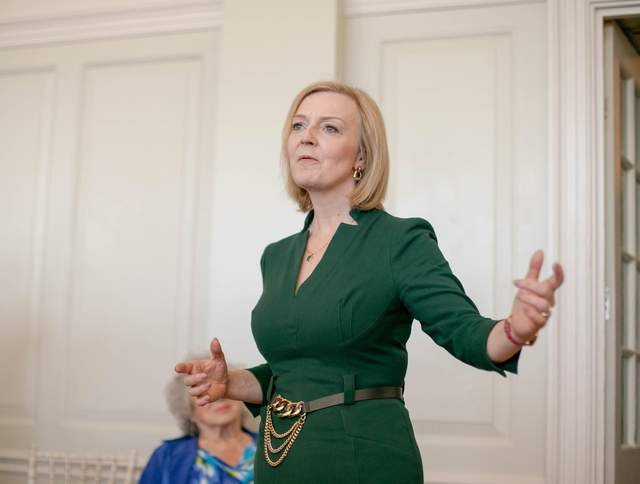The New Prime Minister's Policies
yorkshirepost.co.uk
The steep rise in energy prices poses a grave dilemma for the new government. It is feared that a failure to mitigate the impact of soaring costs could force many households into fuel poverty whilst also destroying the viability of small businesses. The economic fallout could be immense, with the cost of living crisis now dominating the political agenda. Upon assuming office, Liz Truss pledged to alleviate the implications of the energy crisis through both fiscal and supply side initiatives. But what has been pledged and how have the new premier’s plans been received in political circles?
The energy price cap is set to rise in October; it is estimated that this could culminate in an 80% increase in domestic energy bills. It is feared that many households and businesses would be unable to afford such an astronomical increase, with dire consequences for both living standards and the wider macroeconomy. Truss is seeking to prevent these woeful predictions from materialising by introducing an energy price guarantee; the scheme will ensure that annual energy bills for a typical household do not rise beyond £2.5k per annum for two consecutive winters. Without this intervention, these households may have been subjected to a £3,549 annual bill. This will be complemented by a £400 one off payment to all households, a policy which was announced by the Johnson administration. It is designed to offset the rise in energy bills, thus constituting an indirect discount (a £326 targeted support package has also been allocated to low-income households by the previous government). Businesses will be able to benefit from the government-imposed cap for the next 6 months. The government argues that this will restrict unreasonable increases in bills, curbing the economic turbulence which could have manifested itself this winter. At the same time, Truss intends to increase long term energy supplies, chiefly by increasing the prevalence of nuclear power stations and reducing obstacles to fracking. This should render the UK more energy independent, enabling the market to be more resilient in the face of unexpected supply side shocks.
Truss announced the price guarantee in a statement to Parliament. It is important to note that the statement focused on households who are burdened with variable rate energy plans (whereby the unit price of gas and electricity is not fixed at a certain rate). The measure did not appear to be extended to those with fixed rate plans but it has subsequently been announced that fixed rate deals which exceed the price cap will be discounted. This could equate to a £1000 discount for households which consume a typical quantity of energy. However, there are concerns that fixed rate bills could still surpass the cap, notwithstanding the planned government intervention. If so, these households may face additional hardships which are not encountered by those who are absolutely protected by the cap. Moreover, the scheme does not affect households who use oil as a source of heat. However, Truss has stated that she will be creating a fund to support this group, demonstrating that this is a bespoke and extensive package.
The opposition parties have tended to welcome the energy price guarantee. However, there are disagreements as to how the scheme should be funded. Truss has announced that the energy price guarantee will be financed by additional government borrowing. She has rejected Labour’s calls for a windfall tax on the excess profits of utility companies, arguing that this could deter investment in energy supply at a time when the UK needs to bolster its energy security and independence. Labour, on the other hand, contends that increased borrowing transfers the cost to taxpayers (in so far that tax revenue is used to pay interest on government debt), thereby constituting a form of tax. They believe that Truss is making a calculated political decision to protect the profits of energy companies. The debate exposes long standing philosophical distinctions between the two major parties, with the Conservatives tending to prefer a low tax economy which rewards enterprise and effort. It is likely that this disagreement will continue to straddle the political debate for months to come.
by Dara Foody

